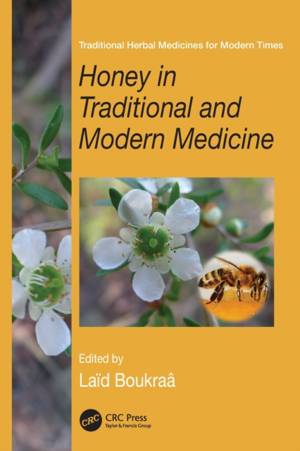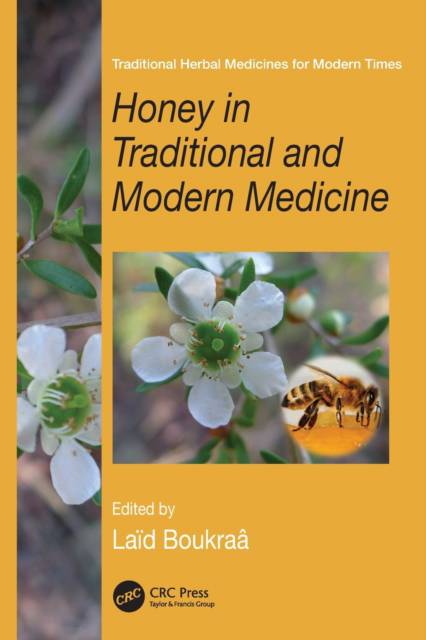
- Retrait gratuit dans votre magasin Club
- 7.000.000 titres dans notre catalogue
- Payer en toute sécurité
- Toujours un magasin près de chez vous
- Retrait gratuit dans votre magasin Club
- 7.000.000 titres dans notre catalogue
- Payer en toute sécurité
- Toujours un magasin près de chez vous
Honey in Traditional and Modern Medicine
67,95 €
+ 135 points
Description
The use of honey can be traced back to the Stone Age. Evidence can be found for its nutritional and medicinal use beginning with prehistoric and ancient civilizations. Currently, there is a resurgence of scientific interest in natural medicinal products, such as honey, by researchers, the medical community, and even the general public. Honey in Traditional and Modern Medicine provides a detailed compendium on the medical uses of honey, presenting its enormous potential and its limitations.
The book covers honey's ethnomedicinal uses, chemical composition, and physical properties. It discusses the healing properties of honey, including antimicrobial, anti-inflammatory, and antioxidant properties. It also examines the botanical origin of honey, a critical factor in relation to its medicinal use, along with the complex subject of the varying composition of honey. Honey's antibacterial qualities and other attributes are described in a chapter dedicated to Leptospermum, or Manuka honey, a unique honey with potential for novel therapeutic applications. Chapters explore a variety of medicinal uses for honey, including its healing properties and use in burn and wound management. They review honey's beneficial effects on medical conditions, such as gastrointestinal disorders, cardiovascular diseases, diabetic ulcers, and cancers as well as in pediatrics and animal health and wellness. The book also examines honey-based formulations, modern methods for chemical analysis of honey, and the history and reality of "mad honey." The final chapters cover honey in the food industry, as a nutrient, and for culinary use.Spécifications
Parties prenantes
- Editeur:
Contenu
- Nombre de pages :
- 474
- Langue:
- Anglais
- Collection :
Caractéristiques
- EAN:
- 9781138199279
- Date de parution :
- 16-11-16
- Format:
- Livre broché
- Format numérique:
- Trade paperback (VS)
- Dimensions :
- 156 mm x 234 mm
- Poids :
- 662 g






